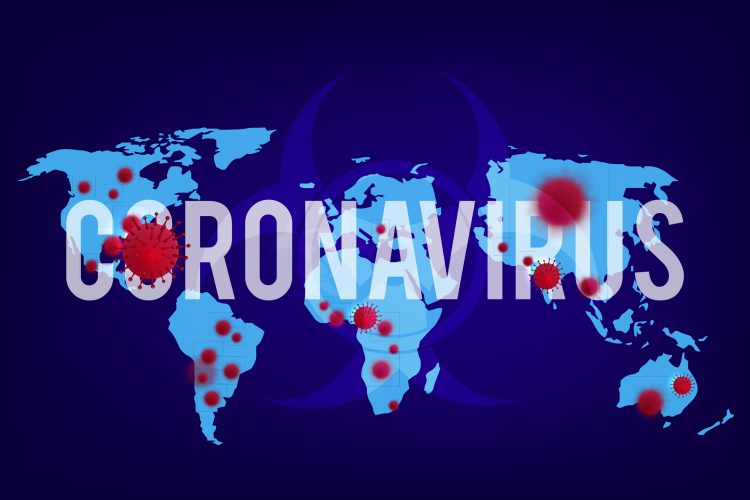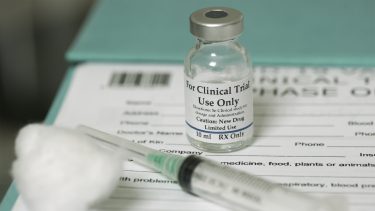Clinical trial disruptions: is it all down to COVID-19?
Posted: 16 November 2020 | Hannah Balfour (European Pharmaceutical Review) | No comments yet
This article explores how COVID-19 has impacted clinical investigation sites and what companies could do to mitigate the effect on trials moving forwards.


The novel coronavirus disease 2019 (COVID-19) has impacted almost every industry and perhaps pharmaceutical drug development most of all. In response to the pandemic, many companies adjusted their R&D efforts to identify promising drug targets; discover, develop or repurpose potential therapeutics; and design vaccine candidates to protect the public.
However, despite the focus on pharma R&D and clinical trials evaluating COVID-19-related therapies and vaccines, the pandemic has had an unprecedented effect on clinical investigation sites, forcing trial suspensions across a range of therapeutic indications and causing fiscal damage that some sites may struggle to recover from.
Roughly 1,100 companies reported clinical trial disruptions due to COVID-19 by May 2020 and, according to GlobalData, approximately 70 percent of these reported disruptions between April and May were due to the suspension of enrolment.
Phesi, a company offering clinical development analytical products and services for biopharmaceutical companies, performed an analysis of clinical trial disruptions and found that almost 30,000 of the 300,000 global clinical trial sites they looked at had suspended trials in June 2020 (approximately 10 percent). When the number of COVID-19 cases began to lower in June, trials began to actively enrol participants once more, reaching an almost pre-pandemic level of recruitment, according to the report. However, the start of the ‘second wave’ of COVID-19 cases has caused a resurgence in suspensions – 28,000 sites were suspended in September.
To explore how the COVID-19 pandemic has impacted investigation sites and what the long-term effects of the pandemic may be on clinical drug testing, European Pharmaceutical Review’s Hannah Balfour discussed the topic with Phesi’s President, Dr Gen Li.
How has COVID-19 impacted clinical trials?
“The pandemic has had a huge impact on the infrastructure of trials. From the countless staff who have been furloughed or remain working remotely, to the many labs and research institutions that have had to close, even if only temporarily. The effect of social distancing and the need to shield vulnerable patients has also led to trial suspensions at many sites.


Now, as the immediate crisis transitions into a semi-permanent state, biopharmaceutical companies and sponsors need to take steps to work around the virus. This means keeping trials going by continuing to fund them, even when they are suspended. COVID-19 is dominating agendas as the search for a vaccine continues, but there are other vital R&D projects – some many years in the making – that must be protected. We are seeing efforts by sponsors to make sure this is case; including some who are reviewing their options around technology solutions. For example, using digital solutions to overcome the physical barriers between patients and health professionals.”
How long are these clinical trial disruptions likely to last?
“The initial shock which brought everything to a halt is behind us. Over the past few months, the industry has steadily brought things back to life, albeit with new processes in place. This is made possible by efforts from the sponsoring pharmaceutical companies, contract research organisations (CROs) and investigator sites. Technology innovations, such as virtual trial-related tools, have also contributed. Ironically, virtual technologies have been around for years, but COVID-19 has accelerated their adoption.
At this point, it is hard to estimate the huge costs associated with trial failures directly caused by COVID-19, but it is safe to say the negative financial impact will last for many years.
It is unlikely that we will return to pre-COVID-19 life any time soon. Restrictions on human-to-human interactions will continue even if or when there are one or more effective vaccines available, simply because no vaccine is 100 percent effective. This will continue to further reduce what is an already low level of clinical trial-related productivity and increase costs accordingly.”
Can we blame all trial failures on COVID-19?
“Trials fail with or without COVID-19. Under ordinary circumstances roughly a fifth of all trials miss the mark.
Clinical studies are the workhorses that bring innovative medicines to patients by providing supporting safety and efficacy data. They are fundamentally part of scientific innovation and medical experimentation, so if they cannot yield satisfactory safety and/or efficacy data they will fail.
In many suspended trials, COVID-19 is likely to have been a superficial trigger for a much deeper problem in the design and enrolment…”
Several human factors can also cause a trial to be unsuccessful, including inadequate clinical trial or protocol design, poorly planned and implemented business processes (site activation in particular) or if the wrong set of countries and/or investigator sites are chosen. Sometimes competition between trials recruiting from the same patient population also brings down a clinical trial. However, today many of these problems are masked by COVID-19 and the pandemic is being blamed for many trial failures.
Our analysis found that when recruitment began to rise again between June and September 2020 there was a sudden increase in new investigation sites. This could be because sponsors are attempting to mitigate the impact of COVID-19 and adding sites to overcome current restrictions; however, even in ‘normal’ circumstances, if companies fail to analyse how well their trials are doing first, adding new sites to an ongoing recruiting trial is a risky practice. In many suspended trials, COVID-19 is likely to have been a superficial trigger for a much deeper problem in the design and enrolment. Biopharmaceutical organisations planning budgets for 2021 need to take a data-driven view in order to make accurate clinical development decisions that will help them navigate the difficult conditions the sector is facing.”
What can be done to mitigate the impact of COVID-19 and allow trials to continue?
“The immediate impact from COVID-19 has accelerated the implementation of virtual trial-related technology. However, to overcome the challenges caused by COVID-19 to clinical development, bolder and more transformative changes must be implemented in a structured way by visionary industry leaders.


To prevent the waste of already limited financial resources available, we must utilise data-driven methods to differentiate those trials beyond rescue (zombie trials) and those that are viable, as both are disguised by the impact of COVID-19. We also need to utilise the patient data we have accumulated over many decades to benefit clinical development programmes. This includes developing optimised Target Therapeutic Profiles (TPP) to maximise the development candidates; improving clinical trial protocols to give the development candidate the best chance to succeed medically and operationally; and allowing a patient-centric approach to reach more patients and reduce patient burden at the same time.
As a Holy Grail, we need to identify and realise the possibility of using synthetic arms, minimising the sample size of placebo or comparator arms by replacing them in part or completely with synthesised patient data.
Leveraging technologies to help with big data, including artificial intelligence (AI), is also important.”
Any other comments?
“Without data-driven decision making, financial resources will be further wasted by resurrecting zombie projects which would have failed even without COVID-19. Costs may also spiral as change orders issued by CROs increase and additional internal contingency planning is required. If organisations do not adapt to these changes it could, in the worst-case scenario, lead to company meltdown and multiple year delays in the development of new therapies. Clinical development companies must have predictive scenario modelling capabilities to accurately manage new change orders and associated costs.”
Related topics
Clinical Trials, Contract Research Organisations (CROs), Drug Development, Industry Insight, Technology, Therapeutics, Viruses









